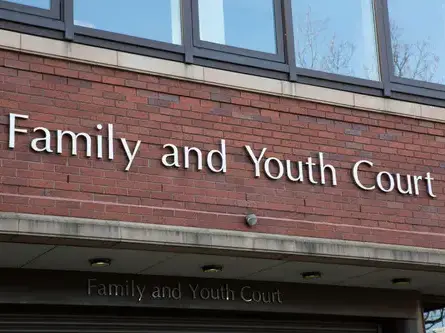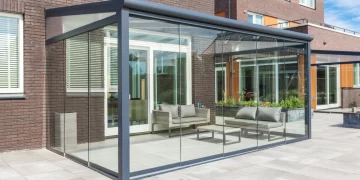
Update, 15 July 2024: The pilot scheme allowing journalists to report on cases at family courts in England and Wales has been expanded to include private law.
It means that, at the 19 courts involved in the pilot scheme, private family disputes may now be reported on, provided the identities of those involved are kept strictly anonymous.
Until Monday only three of the courts participating in the scheme, Leeds, Cardiff and Carlisle, permitted coverage of private law cases. At the 16 other participating courts only public law cases were reportable.
The Judicial Office said the aim of extending the reporting pilot to include private law was “to further explore the impact on the courts system, the judges, those involved in family proceedings, and on the media”.
Sir Andrew McFarlane, the president of the family division, said: “Extending the reporting pilot to include private law in almost half of all family courts is another significant step in the judiciary’s ongoing work to increase transparency and improve public confidence in, and understanding of, the family justice system.
“We hope that by extending the pilot further, we can continue to understand the impact that family court reporting has. I would like to thank all the judges and staff involved, as well as the journalists who have already engaged with the pilot and encourage them and their colleagues to keep reporting on the family courts and the vital public interest issues that they highlight.”
The full list of courts involved is as follows: Leeds, Cardiff, Carlisle, Liverpool, Manchester, West Yorkshire, Kingston-upon-Hull, Nottingham, Stoke, Derby, Birmingham, London’s Central Family Court, East London, West London, Dorset, Truro, Luton, Guildford, Milton Keynes and Cardiff.
Journalists interested in reporting from family courts but who don’t know where to start are invited to contact Katy Durrans in the judicial press office at [email protected].
Original story, 12 January 2024: Journalists will soon be allowed to report with relative ease from 19 family courts in total across England and Wales in a major expansion of a pilot scheme to boost transparency.
The pilot began one year ago by easing restrictions on what journalists could report from three family courts in Cardiff, Carlisle and Leeds.
Now, from 29 January, 16 more family courts will be opened up to accredited members of the press.
The judiciary praised “groundbreaking” coverage of family court cases over the past year at news outlets including BBC Radio 4’s Today programme, the BBC News website, The Sunday Times, The Economist, The Guardian and Observer, the Daily Mail and The Bureau of Investigative Journalism.
Previously, accredited journalists could attend any family hearing but only report what they heard if given permission by the court.
Under the new scheme, the presumption is that journalists can report what they hear, including quoting family members, as long as they keep the parties’ anonymity intact.
The aim of the pilot is to check this can be done with minimal disruption to the courts and those involved in the cases.
Louise Tickle, a freelance journalist who specialises in family court reporting, told Press Gazette: “The expansion of the pilot to so many more courts is a welcome vote of confidence from senior judiciary in how the media has reported under the scheme over the last year.
“While the opposition to greater transparency voiced by one Manchester family judge in a case I attended last summer was disappointing, the fact that so many court centres, including Manchester, have now committed to permitting greater scrutiny shows that the argument is being won.
“Public interest reporting of these sensitive and complex cases is vital to understanding how state power is exercised behind closed doors, and with care and skill, can be done in considerable detail while ensuring that families are safely anonymised.”
The Manchester judge referred to by Tickle was revealed to have said in court he was “not supportive” of the transparency project, that his judgments were “not for public consumption or to allow press and journalists to further their journalistic ambitions” and that he was “very unconvinced about the motives of some of the journalists. Do not forget what they do. They sell copy. They have careers to pursue”. The judge made the comments as he banned journalist Suzanne Martin from a hearing, but the transcript was published after a decision by a more senior judge.
Sir Andrew McFarlane, president of the Family Division, said there had been a “pioneering year of reporting from Leeds, Cardiff and Carlisle” and that expanding the pilot “is a huge step in the judiciary’s ongoing work to increase transparency and improve public confidence and understanding of the family justice system”.
Sir Andrew said in October 2021 that the previous system, which forced journalists to make expensive applications to report each time on what they heard at a family court, was “not sustainable” after carrying out a transparency review. He said the work of family courts is of “significant importance” to society but not able to be sufficiently scrutinised.
For example in 2021 PA and Tortoise were only able to reveal a family court finding that a former Conservative MP, Andrew Griffiths, had raped and abused his wife Kate after a year-long fight through multiple hearings – even though they had the backing of Ms Griffiths.
The 16 new courts taking part in the pilot are: Liverpool, Manchester, West Yorkshire, Kingston-upon-Hull, Nottingham, Stoke, Derby, Birmingham, the Central Family Court in London, East London, West London, Dorset, Truro, Luton, Guildford, and Milton Keynes.
An online training session for the media is being held on Tuesday 23 January – contact [email protected] if you would benefit from attending.
The post Journalists gain access to 16 more family courts in major boost to open justice appeared first on Press Gazette.































